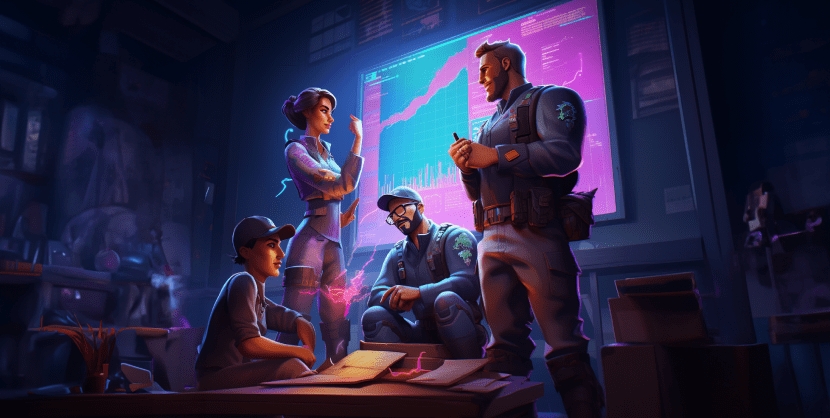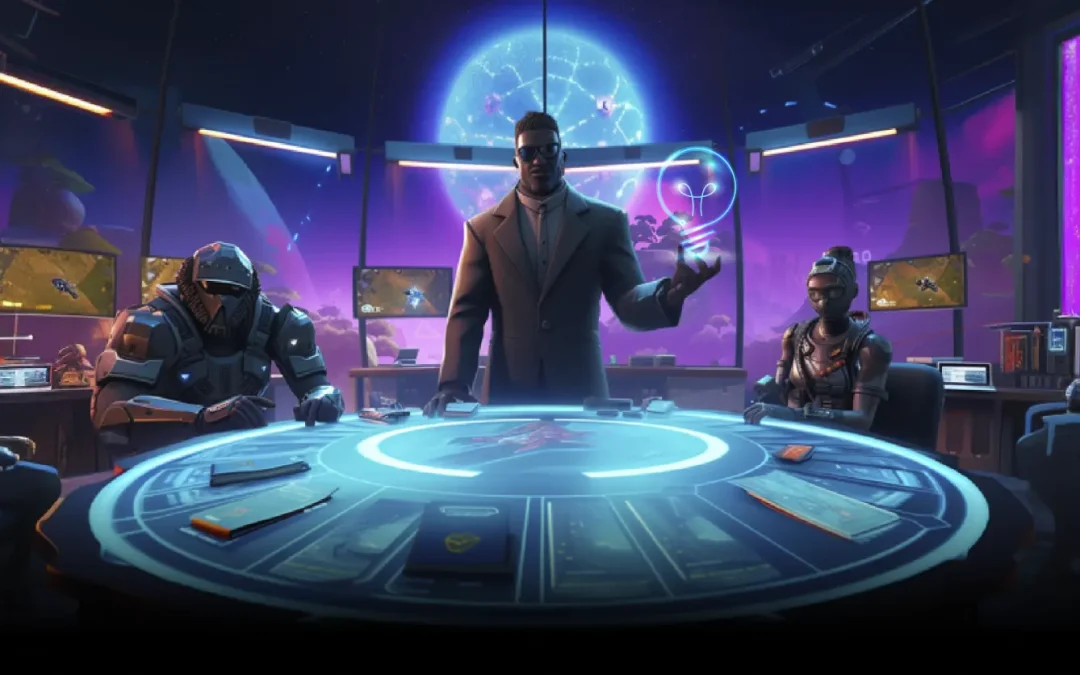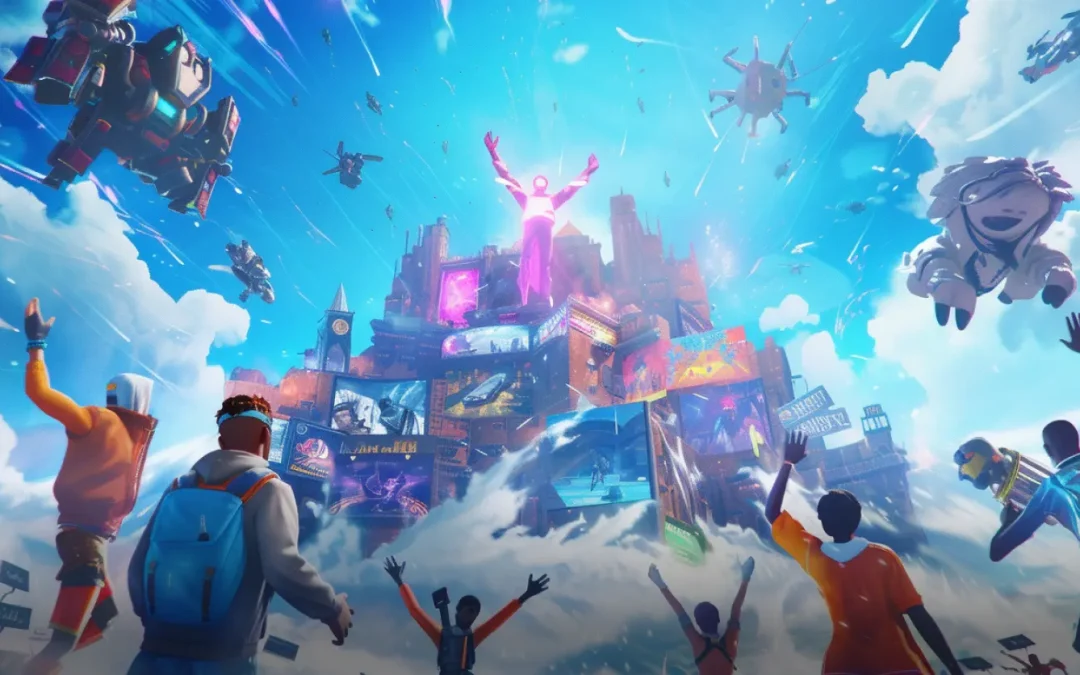There was a time when nerds, loners, outcasts, and introverts were the only ones considered serious gamers. In short, people who struggle with social interaction fit into the real world.
These stereotypes are long gone, and gamers include kids, older women, and accountants who like to relax after a long day at work. With virtual reality (VR) and artificial intelligence (AI) advancements, the gaming world has become a paradise for enthusiasts.
However, unlike other markets, the gaming sector is one space that has been a challenge for marketers to date. It is a niche space that is innately linked with the game launch dates and where traditional marketing strategies fall flat on the face.
So, how can marketers tap into this niche industry and maximize a brand’s presence and visibility? Let’s find out.
What Is a Gaming Marketing Strategy?
Gaming marketing strategies are approaches brainstormed to promote and sell video games or gaming-related products and services. This includes identifying the target audience, gaming preferences, and platform choices.
5 Modern Marketing Strategies To Help A Gaming Brand Establish Presence in The Industry
Even though the gaming sector is now considered a mainstream market, brands still struggle to connect with people and establish their presence. However, the trick lies in using the existing knowledge and gaming marketing strategies to your benefit.
Here are five simple tricks that can help you establish a brand presence:
Embracing Data-Driven Marketing
Data-driven marketing has been long used as a modern marketing strategy for branding and advertising by analyzing player behavior and preferences. This data is then used to create targeted and personalized marketing campaigns.
By understanding what players enjoy, companies can tailor their advertising to highlight specific game features that resonate with their audience.
Additionally, data insights help predict trends and optimize ad spend, ensuring that marketing efforts are effective and efficient. This approach enhances user engagement, strengthens brand loyalty, and maximizes return on investment.
PLG has employed this gaming marketing strategy repeatedly to create and promote content and educate the next generation of avid gamers. Let’s take a look at how data-driven marketing was used to launch the Stream School by PLG.
Logitech Case Study:
PLG used the power of data-driven marketing to launch Stream School, an educational platform aimed at nurturing new content creators.
By analyzing streaming trends, PLG observed a significant 30% increase in streaming activities across the MENA region from 2021 to 2022. This insightful data revealed a growing interest in streaming and the need for proper guidance in this field.
Building on these insights, PLG developed Stream School. The web series, available in Arabic and hosted by BoDeGamer, was created to cater to beginners, guiding them through the complexities of streaming.
The curriculum was designed based on the data about what potential streamers struggle with, focusing on both technical know-how and soft skills required for successful streaming.
PLG brought in Logitech G as the title sponsor to enhance engagement and appeal, preparing exciting prizes and giveaways for each episode. This partnership was chosen based on data indicating the target market’s preferences in the MENA gaming community.
Furthermore, following the data-driven approach, viewers could download a specially designed playbook after each episode. These playbooks were an extension of the lessons, tailored to reinforce the learning process and cater to the specific needs of aspiring streamers.
The result of this data-driven approach was remarkable: Stream School achieved over 2 million views, reached 12 million people, increased engagement by 4%, saw 220 million playbooks downloaded, and generated a public relations value of over $350,000.
The Logitech Case Study underscores the effectiveness of data-driven marketing in understanding audience needs and creating targeted, impactful educational content.
Leveraging Influencer Marketing in Gaming
Influencer marketing has become a cornerstone in both esports and online gaming marketing strategies. In this marketing technique, we use the expansive reach of social media celebrities to reach our target audiences.
One standout example is the collaboration between the energy drink brand Red Bull and Tyler “Ninja” Blevins, a leading gaming influencer. This partnership, featuring limited edition Red Bull Ninja cans, showed the powerful impact of a brand collaborating with a well-known figure in the gaming community.
For brands looking to implement an esports marketing strategy or an online gaming marketing strategy, tapping into this influencer ecosystem offers a pathway to connect with global audiences and remain at the forefront of the ever-changing gaming industry.
Leveraging Social Media Platforms for Gaming Campaigns
PLG has been increasingly using the power of social media platforms to perform effective gaming marketing strategies. These platforms are great for user engagement, community building, and targeted advertising, crucial elements in any gaming marketing campaign.
Here is how marketing agencies have used social media platforms to penetrate their gaming market:
- Twitch for Live-Stream Promotions: Marketing agencies use Twitch to partner with streamers for live demonstrations of games, like how Electronic Arts promoted “Apex Legends,” boosting its immediate popularity.
- Twitter for Viral Campaigns: Twitter’s real-time nature is very effective for viral marketing by using custom hashtags, as seen with Blizzard Entertainment’s promotion for “Overwatch.”
- Instagram for Visual Engagement: Instagram’s visual appeal is utilized for showcasing game graphics and teasers, like Ubisoft’s visual campaigns for “Assassin’s Creed,” keeping fans engaged.
- YouTube for Trailers and Reveals: YouTube is essential for releasing game trailers and gameplay footage, creating pre-release excitement, exemplified by the “Cyberpunk 2077” reveal trailer.
Leveraging User-Generated Content Marketing in Gaming
User-generated content (UGC) changes how players interact within the digital world, moving beyond just playing games to becoming creators. Gaming platforms are smartly tapping into this trend, offering players the tools to craft and contribute their content and infrastructure, enriching the gaming universe.
What’s driving this creative explosion? Well, there are three major trends at play:
- The gap between creators and consumers is closing fast. Now, virtually anyone can share their creativity with the world.
- We’re seeing a shift towards smaller, more nimble game development teams. This change helps in experimentation and brings a delightful diversity to new games.
- The surge in social media has turned many into content creators, celebrated and embraced by society.
To keep up in the competitive gaming landscape, developers and marketers must harness the power of community-driven marketing.
Recognizing UGC’s potential is key. There’s a whole world of platforms out there, from the dedicated gaming forums on Reddit and Discord to the more casual, broader audiences on Instagram and TikTok.
Leveraging UGC on these platforms can build a robust and active community around a game.
Maximizing SEO and ASO for Game Discoverability
PLG has adeptly maximized game discoverability through SEO (Search Engine Optimization) and ASO (App Store Optimization). Understanding that a game’s online visibility significantly impacts its success to enhance web and app store presence.
Key tactics include:
- Keyword Optimization: Identifying and incorporating relevant keywords into game descriptions, titles, and metadata to improve search rankings.
- Quality Content Creation: Developing engaging content, such as blogs, articles, and videos, related to the game to boost organic search visibility.
- User Reviews and Rating Management: Encouraging positive reviews and effectively managing user feedback to enhance the game’s credibility and appeal on app stores.
- Localization: Tailoring game listings for different regions and languages to reach a broader, global audience.
- Regular Updates and A/B Testing: Continuously updating game listings and trying different approaches to see what resonates best with the target audience.
Final Words
As 2023 comes to a trailblazing end, we witness the gaming industry’s continuous growth. It is increasingly vital for game developers and publishers to amplify their marketing strategies to shine in this competitive landscape and satisfy the rising appetite for top-tier games.
Power League Gaming is here to elevate your game to new heights. We offer specialized marketing services tailored to games across various sizes and genres. With our extensive suite of marketing solutions, we empower you to unlock your games’ full potential and captivate a broader audience.
Ready to transform your gaming reach? Let’s have a conversation with us today!





